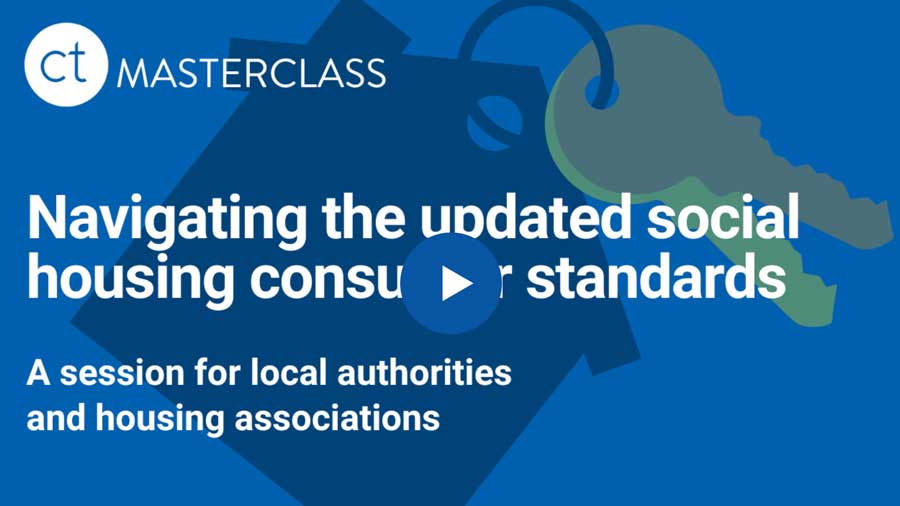And another thing… let’s be kind!
Why a culture of kindness is key to your organisation’s success

PEOPLE & CULTURE
Image: Istock

James Tickell
Partner, Campbell Tickell

James Tickell
Partner, Campbell Tickell
Issue 71 | April 2024
At our recent Campbell Tickell webinar, we rightly heard plenty about the importance of positive organisational cultures. This short blog is more about the dark side, and how a negative culture, or even just small pockets of negative culture, can impact heavily on an organisation’s success and wider reputation.
Unkindness
Let’s start with unkindness. You may be surprised to hear that the word is a collective term for a flock of ravens! Where people are unkind or disrespectful to their colleagues and customers, so much can go wrong. If tenant complaints are ignored, or treated defensively, the ravens, the Housing Ombudsman, and now the Regulator of Social Housing, may not be far behind, with the world of pain which that implies for all concerned.
I worked many years ago for an organisation where tenants were regarded (by some) as lucky to have their homes, and most complaints taken as evidence of ingratitude. That organisation and its name are now lost to history. Kindness is core to success, to delivering social purpose, and to achieving those noble mission statements.
“Lack of kindness between colleagues leads to low staff satisfaction, not to mention possible difficulties with retention and recruitment.”
Low staff satisfaction
In the same vein, lack of kindness between colleagues leads to low staff satisfaction, not to mention possible difficulties with retention and recruitment. A high incidence of disciplinaries and grievances may also be noted, with all the distraction of energy that brings.
Lack of trust
Lack of kindness may also contribute to lack of trust. Particularly damaging is the situation where frontline teams have lost trust in their leadership, and will be cynical about such matters as values, mission and motives. Those attitudes will typically leak out beyond the organisation’s boundaries, affecting the perceptions of tenants, contractors, partners and other stakeholders.
Silo working
Silo working is also linked to lack of trust and will tend to make it worse. Colleagues may avoid taking responsibility for fear of being blamed for some failings and seek to push issues onto other teams or colleagues. It can be so much easier to pass the buck, thinking that “it’s not my problem”. Or to shelter behind job descriptions and demarcations in classic jobsworth style.
Sloppiness
The next indicator of a negative culture is best characterised as sloppiness: that willingness to cut corners so as to move on swiftly. At the front line, that may translate as botched repair jobs, storing up more expensive problems for the future, as well as being unkind to the tenants concerned.
Inadequate or skipped data entry can create even bigger risks, allowing serious problems to fall between the cracks. And poor IT security discipline opens the door to successful cyber-attacks, which can come with six or seven-figure price tags.
Holding to account
One mistake that can be made is to equate kindness with lack of rigour. Not so. One thing we have learned from our work on culture is that hard-working colleagues are concerned and demotivated to perceive others seeming to get away with poor performance, sloppiness or unkindness. These perceptions may or may not be fair, but are damaging in any case. A strong organisational culture demands challenge and holding to account.
In conclusion then, boards and leaders need to be highly aware of the culture in their organisations and teams. They also need to remember that their own kindness, behaviours and example are probably the single most important influence on the wider culture across the whole organisation. I’ll end with a quote from Maya Angelou:
“People will forget what you said, people will forget what you did, but people will never forget how you made them feel.”

